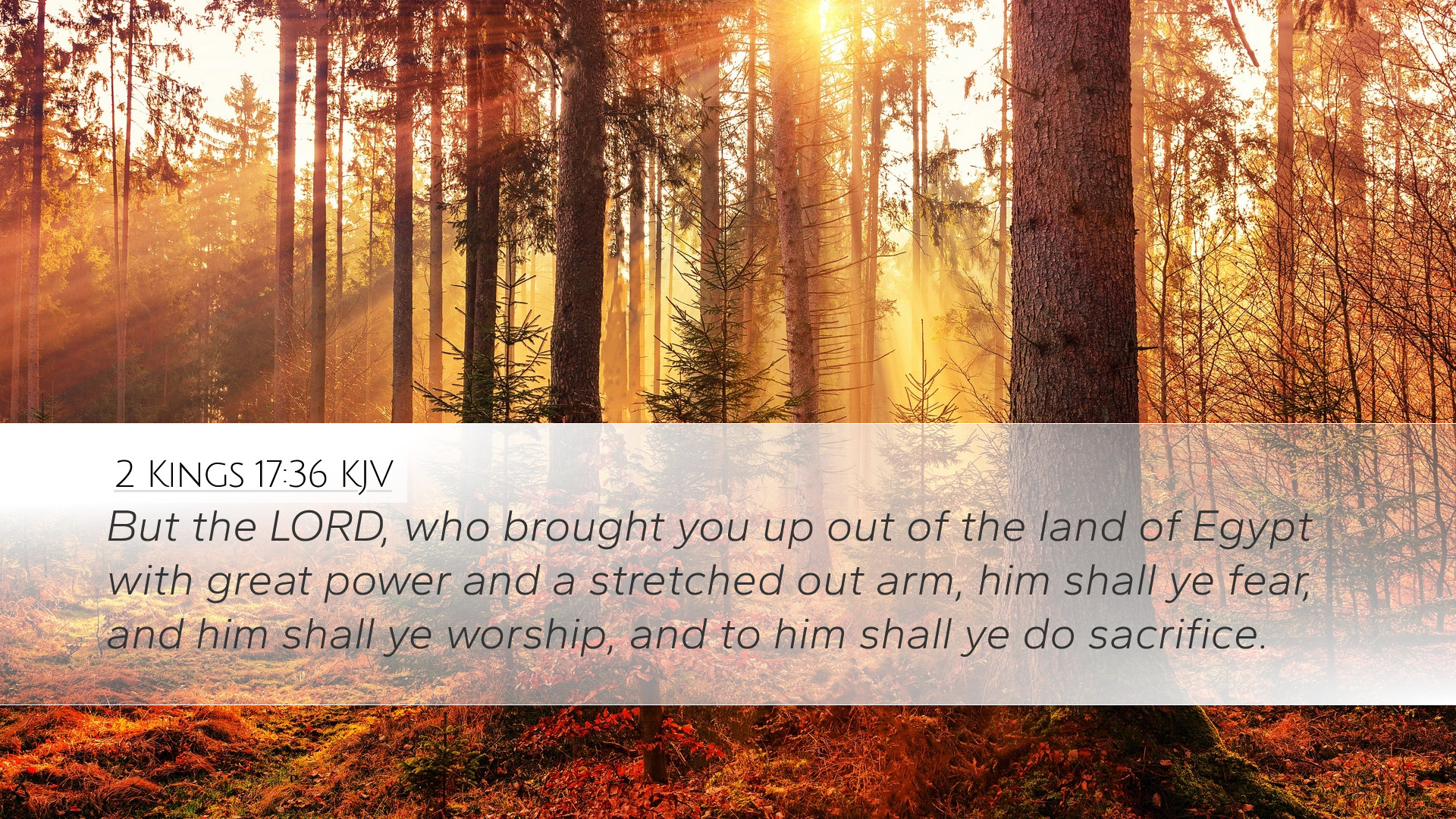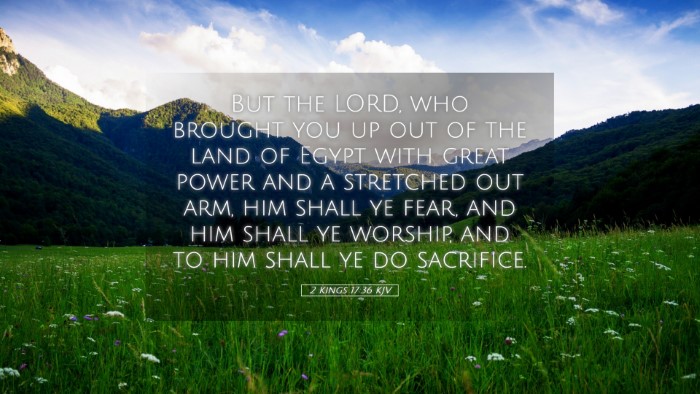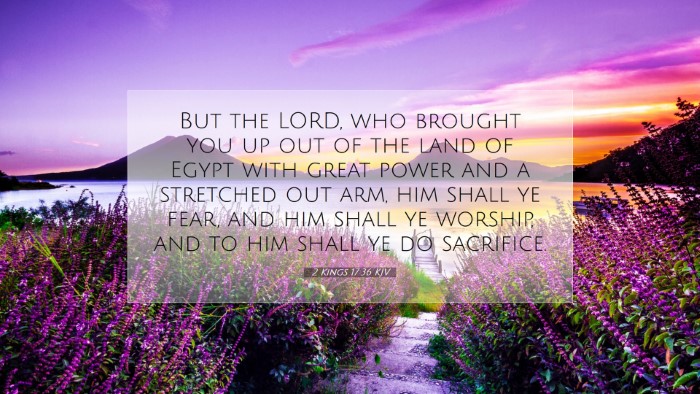Commentary on 2 Kings 17:36
Bible Verse: But the LORD, who brought you up out of the land of Egypt with great power and an outstretched arm, Him you shall fear, and Him you shall worship, and to Him you shall offer sacrifices.
Introduction
The verse from 2 Kings 17:36 serves as a profound reminder of the mighty deeds of the Lord and His rightful place in the lives of His people. In the context of the Israelite history, this passage offers a crucial reflection of their covenant relationship with God, historically rooted in the act of deliverance from Egypt. This commentary synthesizes insights from various public domain commentaries, such as those by Matthew Henry, Albert Barnes, and Adam Clarke, offering a depth of understanding relevant for pastors, students, theologians, and Bible scholars.
Contextual Background
The backdrop of this chapter is the fall of Israel and the ensuing judgment of God for their persistent idolatry and disobedience. 2 Kings 17 narrates the history of Israel leading to the Assyrian conquest and explains the reasons for their downfall. The Israelites had forsaken the Lord, indulging in pagan worship and customs. Thus, verse 36 serves as a call back to a recognition of God's sovereignty and past deliverance.
Matthew Henry's Insights
Matthew Henry emphasizes the importance of remembering God's great acts of salvation. He points out that the reference to the Exodus is not merely historical but is meant to evoke a deep sense of gratitude and reverence among the Israelites. Henry suggests that this remembrance should inspire not only fear and worship but also a heartfelt commitment to living according to God's statutes.
Albert Barnes' Reflections
Albert Barnes observes that the phrase "fear the Lord" signifies a relationship built upon respect, honor, and awe for God's might and holiness. He argues that true worship is grounded in an acknowledgment of God's power and His righteousness. This verse serves as a fundamental reminder that our worship must be informed by the great acts of God’s deliverance, encouraging believers to maintain faithfulness in their worship practices.
Adam Clarke's Commentary
Adam Clarke further elaborates on the implications of fearing the Lord. He insists that this fear is not one of terror but a rightful recognition of God’s greatness. Clarke highlights that such worship should manifest in the offering of sacrifices and presenting oneself in service to God. He points out that these practices are outward demonstrations of an inward faith and reverence held toward God.
Theological Implications
God's Deliverance
This verse captures the core of Israel's identity—God's act of bringing them out of Egypt. It invites a deeper theological reflection on how God's deliverance is not just a historical fact but a theological framework that shapes the believer’s understanding of life. The same God who acted mightily in history continues to act powerfully in the lives of His people today. Believers are called to remember this divine delivery as a catalyst for living faithfully in a world that often promotes secular and idolatrous practices.
Fear and Worship
The dual call to fear and worship underscores the relationship between reverence and adoration. The command to fear the Lord suggests a healthy respect for His holiness and authority. This fear is intertwined with the concept of worship, which is an active engagement of the heart, soul, and mind in recognizing God’s supreme worth. Both Henry and Clarke affirm that fear leads to an appropriate response of worship; this worship, in turn, reinforces the believer's understanding of God’s nature.
Practical Applications
- Remembrance: Encourage congregants to regularly reflect on God's past deeds in their lives, especially His deliverance through Christ.
- Worship Practices: Develop worship services that focus on the characteristics of God’s greatness, integrating both reverence and joy in worship activities.
- Teaching on Fear of God: Share insights about the fear of God, ensuring understanding that it is a loving, awe-filled reverence rather than fear of punishment.
- Community Engagement: Foster a community that exemplifies faithfulness and devotion, uniting under the acknowledgment of God's past faithfulness to encourage present obedience.
Conclusion
In conclusion, 2 Kings 17:36 is not merely a historical recollection, but a vital call to remember the Lord who redeems, to fear Him as a rightful response to His dignity, and to worship Him passionately as a community of faith. It reinforces the significance of seeing our lives through the lens of God’s past actions and His covenant promises. For pastors and theologians, it presents the challenge and opportunity to live out and teach these principles, ensuring that worship remains vibrant, dynamic, and deeply rooted in the truth of God's history with His people.


